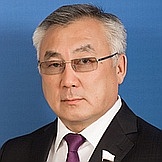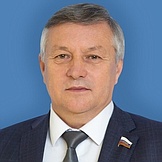Regional flags and emblems


PROFILE
Established 1 March 2008, as a result of the unification of the Chita Region and the Agin-Buryat Autonomous Area
Capital Chita
The Trans-Baikal Territory is part of the Siberian Federal District
Area 431,900 sq km
Population 984 300 (2024)
Ethnic groups
(2020 National Census, %)
Russian – 89,22
Buryat – 7,41
Other – 3,37
Administrative divisions (2024)
Municipal districts – 25
Municipalities – 6
City districts – 4
Rural towns – 38
Rural districts – 273
Geography and climate
Configuration of terrain: subdued mountains up to 1,700–1,900 m. The largest mountain ranges include the Daursky, Kodar and Yablonovy ranges. The highest point of the territory is the peak of the Baikal-Amur Mainline located at 3,073 m above sea level.
The territory borders on the republic of Buryatia in the west, the Irkutsk Region in the northwest, the Republic of Sakha (Yakutia) in the northeast and the Amur Region in the east. In the southeast, the territory has state borders with China and Mongolia.
The largest rivers include the Onon, the Shilka, and the Argun (Amur basin), the Vitim, the Olyokma, the Chara (Lena basin), the Khilok and the Chikoi (Baikal basin).
The largest lakes are: Bolshoye and Maloye Leprindo lakes, Ivano-Arakhleiskiye lakes and Zun-Torey and Barun-Torey brackish water lakes. Lake Kenon is located in Chita.
The climate is sharply continental. January temperatures average –25.6°C, July temperatures average +18.0°C.
The Trans-Baikal Territory has two state biosphere reserves (Daursky and Sokhondinsky), two state sanctuaries of federal significance (Tsasucheisky Bor and Dolina Dzerena), two national parks (Alkhanai and Chikoi), two nature parks (Ivano-Arakhleisky and Arei), 16 state sanctuaries of regional significance, 65 natural landmarks and 9 medical rehabilitation localities and resorts.
Government
The legislative branch is represented by the Legislative Assembly of the Trans-Baikal Territory, which is permanent, representative and only body of legislative authority in the region.
The Legislative Assembly of the Trans-Baikal Territory has 50 deputies elected for five years, with 25 of them running in single-member constituencies and the other 25 in the single electoral district in proportion to the number of votes cast for lists of candidates nominated by electoral associations.
The current Legislative Assembly was elected in September 2023. Its term expires in September 2028.
The executive branch is the Government of the Trans-Baikal Territory, which is the permanent and supreme body of legislative authority in the region. The Government of the territory is a collegiate body and heads the system of executive agencies of the Trans-Baikal Territory. It is formed by the Governor of the Trans-Baikal Territory.
The Governor of the Trans-Baikal Territory is the region’s highest-ranking official and heads the executive authority of the Trans-Baikal Territory, elected for five years by Russian citizens who permanently reside in the region. The term of the incumbent Governor expires in September 2024.
Economy and natural resources
The Trans-Baikal Territory is rich in various mineral resources and raw materials, and has relatively favourable conditions for agriculture. The availability of a direct transport link with the Asia-Pacific markets is highly important. However, the harsh climate, rugged terrain and high seismic activity have a negative effect on the economic development of this territory. Underdeveloped energy and transport infrastructure is one of the major factors affecting the economic development and investment attractiveness. The creation of a mining complex in the region’s north, modernisation of the Baikal-Amur Mainline, launch of the Bystrinsky Mining and Processing Plant and development of the southeastern part of the territory are of strategic importance for the region’s economy. Efforts are underway to attract companies to set up their operations at the Zabaikalye priority development area.
The territory has great resource potential with its deposits of uranium, fluorite, gold, copper, molybdenum, titanium, silver, lead, zirconium, tungsten, tin ore, lithium, zinc and iron ore. It also has 23 deposits of coal and several dozen of coal occurrences with total resources estimated at 7 billion tonnes. The Apsatskoye and Chitkandinskoye coal deposits are also rich in natural gas. Total methane reserves concentrated in coal deposits reach 63–65 billion cubic metres.
Transportation and storage, trade, financial and insurance activities account for the greatest share of the regional GDP.
The Trans-Baikal Territory’s economy has traditionally specialised in mining. The region continues developing its mineral resource base and creating new production facilities for the extraction and deep processing of mineral raw materials.
In large cities, there are food and wood processing companies and companies manufacturing construction materials.
The largest companies are the Novo-Shirokinsky Mine, Priargunsky Industrial Mining and Chemical Union, Novoorlovsky Mining and Processing Plant, Bystrinskoye Mining Company, Kharanorsky Open Pit, and 810 Aircraft Repair Plant.
The Trans-Baikal Territory has been increasing its foreign trade, with minerals as its main exports, dominated by lead and zinc concentrate, as well as timber and wood products. The Trans-Baikal Territory is also a major agricultural region specialising in livestock breeding. Its most developed sectors are meat and dairy cattle breeding, fine-wool and medium-wool sheep breeding and horse herding.
The territory is currently focused on developing the border infrastructure, the border and cross-border transport network, and the modernisation and construction of checkpoints in the Russian-Chinese and Russian-Mongolian sections of the state border.
The development of the border infrastructure is highly important for the implementation of many projects involving foreign capital, such as the development of the Berezovskoye iron ore and the Noion-Tologoiskoye polymetallic ore deposits, the creation of the Amazar Pulp Mill and many others.
Culture and tourism
The culture of the Trans-Baikal Territory is unique in its diversity. It is a natural result of many years of blending of different cultures and traditions.
The Trans-Baikal Territory has various state and municipal cultural, archival and educational institutions, including libraries, museums, cultural and leisure institutions and theatres, and a zoo.
The Budashkin International Folk Instruments Competition has been held in the territory for over 30 years. This contest, and a number of other regional and interregional contests and exhibitions for the students of cultural educational institutions, serves as a powerful stimulus for the development of local culture.
The Pushkin Trans-Baikal Regional Universal Scientific Library is one of the largest libraries in the territory. It is included in the list of 50 Russian regional libraries that form the regional archive of significant literary works for the unified Russian data bank of significant literary works.
The territory hosts large-scale socially significant events, such as the Trans-Baikal International Film Festival, the Open Air on the River Shilka project in Sretensk, the Semeiskaya Krugovaya International Festival of Old Believers in Krasny Chikoi, the Love for the Trans-Baikal Territory Cossack Festival, the Uspenky Festival on the Nercha River interregional festival of Russian folklore, the Onon: The Connection between Ages and Peoples ethnic and environmental festival in Nizhny Tsasuchei, the 2nd In the Depth of Siberian Ores Interregional Festival held in Petrovsk-Zabaikalsky, the Zunai Naadan culture and sports festival, the Linkhovoin International Vocal Competition and the Golden Thread of Our Ancestors national costume contest.
The territory hosts festivals to promote the development of event tourism, thus attracting investment in the local economy. Promoting rural tourism is another priority for rural development. For local residents and visitors, the territory has developed a great number of tourist routes, including ecological, agro-ethnographic, pilgrimage, religious and military-historical routes.
The territory’s geographic location on the border with China has facilitated rapid development of cross-border tourism. The Trans-Baikal Territory has become one of the ”tourist gates“ for the Asia-Pacific region, contributing to the intensive development of the tourism industry.

